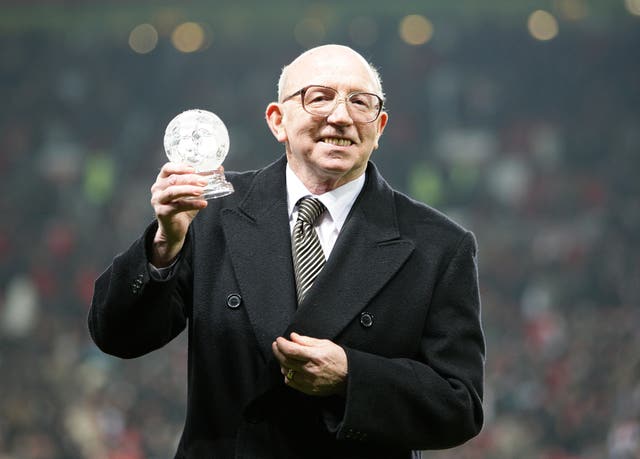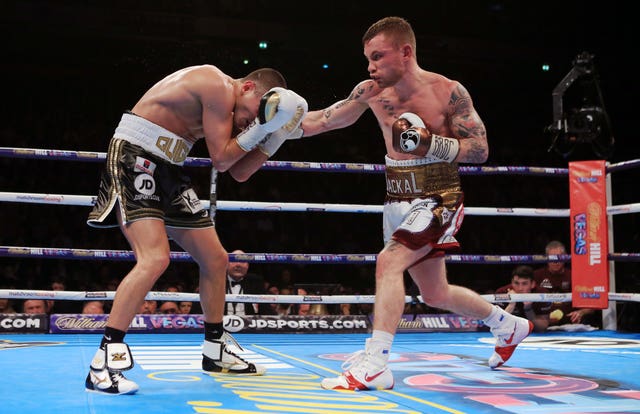Carl Frampton insisted he would have retired already if he was showing any signs of mental deterioration as the Northern Irishman implored other fighters to follow his lead and regulate their sparring sessions.
The issue of head injuries in sport has come into sharp focus recently, especially in football following the deaths of 1966 World Cup winners Jack Charlton and Nobby Stiles last year, both of whom had been diagnosed with dementia.
Frampton has been troubled by the discussions, especially as boxers are more susceptible to lasting neurological disorders due to excessive blows to the head, but he has taken steps to mitigate possible problems in later life.
Reducing the number of rounds he spars in training camps for his last few bouts has been key for the former super-bantamweight and featherweight world champion, who ruefully reflected on his previous preparations.
Speaking to promote his Inside Fighting podcast, the 33-year-old told the PA news agency: “I have thought about (dementia) more recently in my career. But I’ve changed how I train, I don’t spar as many rounds as I used to.
“If I continued to train like I always did, I’d have already retired.
“For the Scott Quigg fight (in 2016), for example, I sparred 220 rounds, which is insane, and I was sparring big guys like Gary Corcoran, who fought for the welterweight world title. Stupid stuff, but it’s just the way I was.
“The age I had in my head that I wanted to retire was 30, but with changing training methods and my approach to how I fight and train, that has helped me with longevity.

“The sparring is where a lot of the damage is done. I would spar less now and I would stretch more. But I haven’t been in loads of wars and if there was even any slight sign of deterioration in me mentally, I would get out.”
The death of Leon Spinks, aged just 67, earlier this month provided another reminder about the perils of boxing, with the former world heavyweight champion battling dementia, the result of the punches he took during his career.
Frampton, who takes on WBO super-featherweight champion Jamel Herring on February 27 aiming to become the first Irish fighter to win world titles in three divisions, has advocated his fellow fighters copying his methods.
As well as cutting down on the amount of sparring and trading blows with someone in and around a fighter’s weight category during training, Frampton feels more guidance could be given on the importance of protective equipment.
He said: “I don’t know how you’re going to do it but I think there should be a limit set on the amount of rounds people can spar per training camp.
“Maybe not sparring too far out of your weight class as well, which is something I’ve done in the past. I’ve sparred big guys, too big for me. Maybe keep it in and around one up or one down from your weight division.
“There should be rules and regulations around what size gloves are worn in the gym and make sure the headguards are of good enough quality. I’ve seen guys spar with really s***, basic headguards and they may as well not wear one.
“I used to spar a guy who didn’t wear a headguard, a gumshield or a ball guard; it was mental and he was a British champion.
“There needs be just a few more regulations in place around that in the safeguarding of sparring because that’s I think where all the damage is done.”

The parameters of sparring are at the discretion of a fighter and their team, something Frampton acknowledged would have to continue as expecting the British Boxing Board of Control to moderate every training camp is unrealistic.
He said: “You can have these regulations and this advice but you can’t have a British Boxing Board of Control official watching every single training session.
“It would really be down to the coaches and the boxer, but I suppose handing out that advice wouldn’t be a bad thing.”
:: The first two episodes of Inside Fighting are out now, available on all major podcast platforms and YouTube






